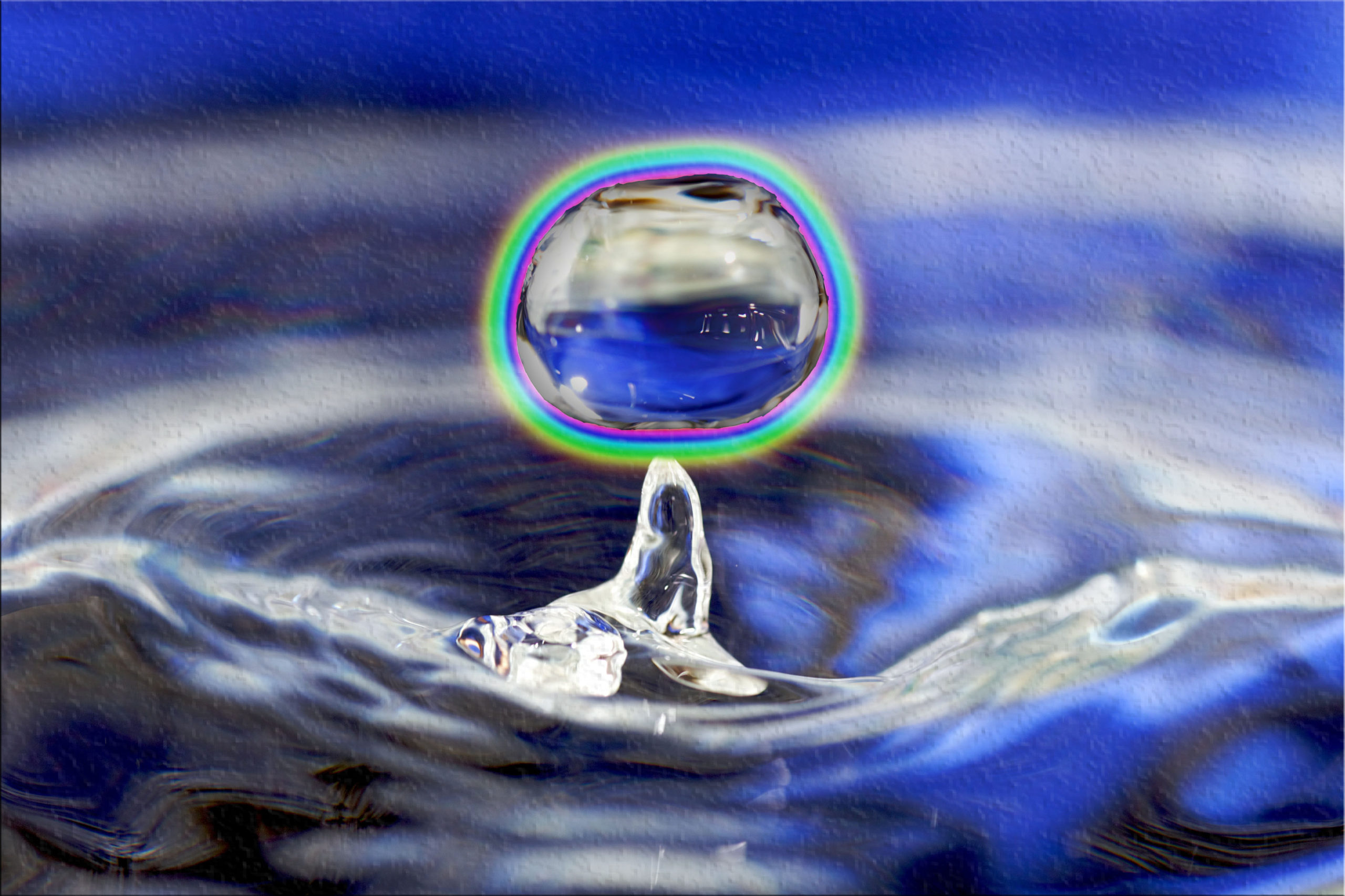Is Water Wet?
A Mangoprism Playlist

(Note: the playlist is best experienced with crossfade on full)
“Idon’t like nothing wet except my water,” said a colleague recently, when we found ourselves caught outside in a rainstorm. It seemed like a clever solution to the popular pseudo-philosophical question of whether or not water itself is wet—among the many trivial koans posed on long drives or Twitter to stir up debate, like: is a hotdog a sandwich? Some argue that water cannot be wet because it is never dry, while others believe that water is the wettest thing of all. Regardless, my colleague’s statement kept popping up in my head—nothing wet except my water—as I was compiling a genre-spanning playlist of the greatest songs that incorporate the sound of water.
I selected the first tracks from memory. But I soon went searching for more in the hope of curating a more diverse and definitive list. After sifting through the songs in my library, I turned to Google with only mild success; it is remarkably difficult to search for a sampled sound (WhoSampled keeps comprehensive records of which songs are sampled in other songs, but ignores uncopyrighted noises) and most classic songs about water—like Rihanna’s Umbrella, for example—have surprisingly dry musical palettes.
Long before sampling was possible, Ludwig van Beethoven attempted to capture something of the aquatic soundscape using orchestral strings to imitate both a peaceful river and a violent storm in his Pastoral Symphony (while certainly a proto-sample of water, I decided to exclude Beethoven and stick to legitimate samples only). By the time I had filled the playlist with qualifiers, and distilled it down to the best of the best, several patterns had emerged: while some songs feature the sound of water throughout (Drop by Cornelius), others employ samples for evocative intros alone (Sing Swan Song by Can). Effect varies too—ocean waves create a mood of tranquility on the 1973 French track L’île du bonheur, while a thunderstorm underscores emotional turmoil on The Doors’ Riders on the Storm. In terms of audio alone, the samples run the gamut from choppy to smooth, looping to free-flowing. Producers use the samples as textures, rhythms and stings, dissolved into the background of songs or floating on the surface. Take the track Bugg’n by TNGHT, for instance, a bangin’ trap beat that features just one looping water drop after the bass drops, evocative and pure.
Many of the songs explore the relationship of water to the body, with its fluids sticky and oozing; Sophie’s LEMONADE does so with a blend of lyrical and auditory innuendos:
It's just that when I'm with you
And everything's okay
I get that fizzy feeling
And I want lemonade
Notably, my search for existing “wet” playlists on Spotify resulted almost exclusively in sex playlists. Justin Timberlake embodies a salty cuckold on Cry Me a River, where the sound of a gushing river in the intro ties into the figurative language of the lyrics. This same body/water binary is explored by Nicolas Jaar on Être: “Look, it’s a body, floating into the land / No… It’s the water itself that’s a body of water.”
Of course, the relationship between humans and water grows increasingly fraught. Rising sea levels threaten our coastal populations, the Great Pacific Garbage Patch expands every year, and global warming wreaks havoc on marine ecosystems. Is there an ecological balance to be found between humans and water in these songs? Despite the unwarranted flak that their genre receives, I believe no one comes closer to striking such a balance than New Age artists like Alice Damon, whose deep respect for the natural world is demonstrated by her song Waterfall Winds—voice and piano only accenting the clear rush of water through air—inspiring awe, as well as a greater appreciation for the significance of the aquatic in nature and our lives.
Even the unaccompanied sound of water is mesmerizing. I couldn’t help but include a couple of field recordings, like the standout Draining the Bath with Dripping Shower Head Sounds. White noise? I’m skeptical; maybe I’ve trained my ears on too much ambient music, but Draining the Bath feels too dynamic for that label—Wet Noise feels much more accurate.
From a philological perspective, it is unsurprising that the question of whether water is wet remains unresolved; it is the very substance that we employ to describe fluidity and the slipperiness of signs. The idea would require water to act as both subject and object, performing a sort of mirroring—water wetting water. Listening to the vibrant sounds in this music, I can hear this reflexivity realized by the water swirling into Matmos’ washing machine, rolling in waves, splashing down a waterfall, wet like a heavy cloud—composed of water, containing water—silent until it finally bursts and we hear Rain Hitting the Roof of a Car. ▩